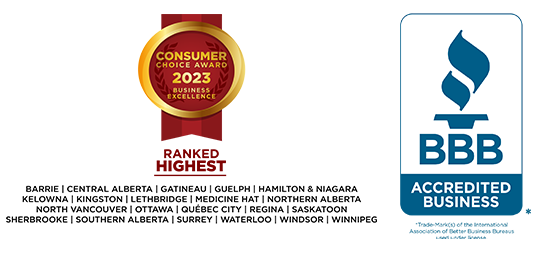Traps To Avoid As A New Business Owner
Starting a new business is a great adventure. The anticipation for what’s to come motivates you to get up and take on the next challenge each morning. Of course, you’ll also face days where you wonder why you even got out of bed – and maybe you’ll even ask what made you start this venture in the first place.

Since you’re running the show, it’s on you to make multiple decisions every day, especially the challenging financial ones. When you’re first starting out, money decisions can have huge impacts on your business now and into the future. And if you’re not careful, you might find yourself falling into one of these pesky and potentially dangerous traps.
The Dream Business
In 1976, Steve Jobs was one half of a duo pioneering the personal computer revolution from his parents’ garage. He never could have imagined the smartphone revolution 30 years onward – let alone that his company would be the driving force behind it. Every business has small beginnings.
If you’re opening a boutique clothing shop and your dream is to operate ten stores across the country, will you open all ten stores simultaneously? That may be your ultimate dream, but it will take time to achieve. Better to open one shop, build your reputation and perfect your operation than run yourself ragged trying to do it all at once.
If your business is scalable and your dream is to grow it, have patience. Don’t get too big too soon without knowing you can support it both mentally and financially.
Co-Mingling Money
Co-mingling your business and personal finances is a trap masquerading as convenience. It makes it difficult to distinguish business from personal expenses, let alone track what’s coming in and what’s going out.
Save yourself the confusion and open a separate business account. Deposit all business capital into and pay all business expenses from this account. If you plan on using credit, apply for a business credit card or line of credit account. To pay yourself – whether as an employee or a proprietor – transfer the appropriate amounts to your personal account and use these funds for personal expenses only.
At first this will take more effort and forethought, but separating your finances will simplify your record keeping. Your bookkeeper or accountant will thank you. And you’ll appreciate how much easier it is to determine business expenses and allowable write offs come tax time.
“It’s a Write Off”
Speaking of write offs… Many owners risk their financial stability by spending on extras, in some cases even paying a premium, believing they can claim these expenses and increase their tax refund at the end of the year. But this is a risky gamble. Tax write-offs are complex and often highly specific. More importantly, not every business expense is a write-off.
Potential write offs do not justify creating unnecessary business debt; especially because the tax benefits may not be as valuable as you expect. Consult with a tax professional to find out what you can and cannot write off and avoid spending too much money that you may never see again. Unless you’re absolutely certain you can claim it, avoid any non-essential purchases and expenses.
You may also want to speak with your accountant about contributing to an RRSP to see how much you can potentially realize in tax savings. Multiple strategies to reduce taxes owing is a great plan. Plus, now that you work for yourself, you need to ensure you’re saving enough for retirement.
Credit
Too many new business owners gain access to large amounts of credit without a plan to keep it under control. This leads to the temptation to use more credit than planned or necessary. Relying on the next big job or using money already set aside for taxes to pay off credit debt is a shaky foundation to run a business on.
Carrying too much debt on credit cards or across multiple financing plans may seem manageable in the short term, especially while business income is good. But what if the market takes a nosedive? Be pragmatic and prepare yourself for the worst-case scenario. Make a habit of contingency planning – asking what you would do if your costs went up dramatically, your revenue sharply decreased or market headwinds challenged your ability to operate. Imagine credit isn’t an option to cover these unexpected costs.
You need to be honest with yourself about your spending. If you need credit to manage your costs, you must either cut expenses or bring in more income. Better yet, do both. Keep your credit use manageable so you can focus on growing your business, not playing catch up on months old debts.
Putting off Paying Taxes
As a former employee, you‘re probably used to someone else taking care of your tax deductions. But as a business owner or self-employed individual, you see all the money coming in. It’s up to you to make those deductions wholly, accurately and on time.
Of course, this can be a challenge. How tempting to not deduct anything at all! Or, at the very least, delay it for a little while. But you must treat your income as gross income. Consult a tax professional to discuss what percentage – potentially up to 30 percent – is enough to set aside.
Be diligent about this. Pretend the ‘extra’ money doesn’t exist and work within the limits of your after-tax income. In fact, protect yourself from temptation by arranging monthly installments with Canada Revenue Agency. That way the money leaves your account and goes into theirs, eliminating the temptation to use the funds for something else.
If you have been setting aside money for taxes, leave it alone! Don’t fool yourself into thinking you will replace it next month if you just use some of it this month. Getting behind on taxes is stressful, can negatively impact your business operations and potentially put your assets at risk. It’s just not worth it.
Debt Solutions
Debt happens. And it can happen faster than you think when you’re running a business. But no matter your situation, there are always solutions – some can even eliminate your debt without having to close your hard-built operation.
Contact a Licensed Insolvency Trustee for a Free Confidential Consultation today to learn your options. During this no-obligation initial meeting, a government licensed debt professional will review your entire financial situation, challenges and goals and uncover opportunities to defeat your debt for good.
You may qualify for a Life-Changing Debt Solution, such as Bankruptcy or a Consumer Proposal, which would halt current collections action, prevent future collections action and help you become debt free in as little as nine months from your initial filing. But regardless of your preferred path toward a financial fresh start, they will always make sure you’re armed with the information you need to make the choice that’s best for you.

